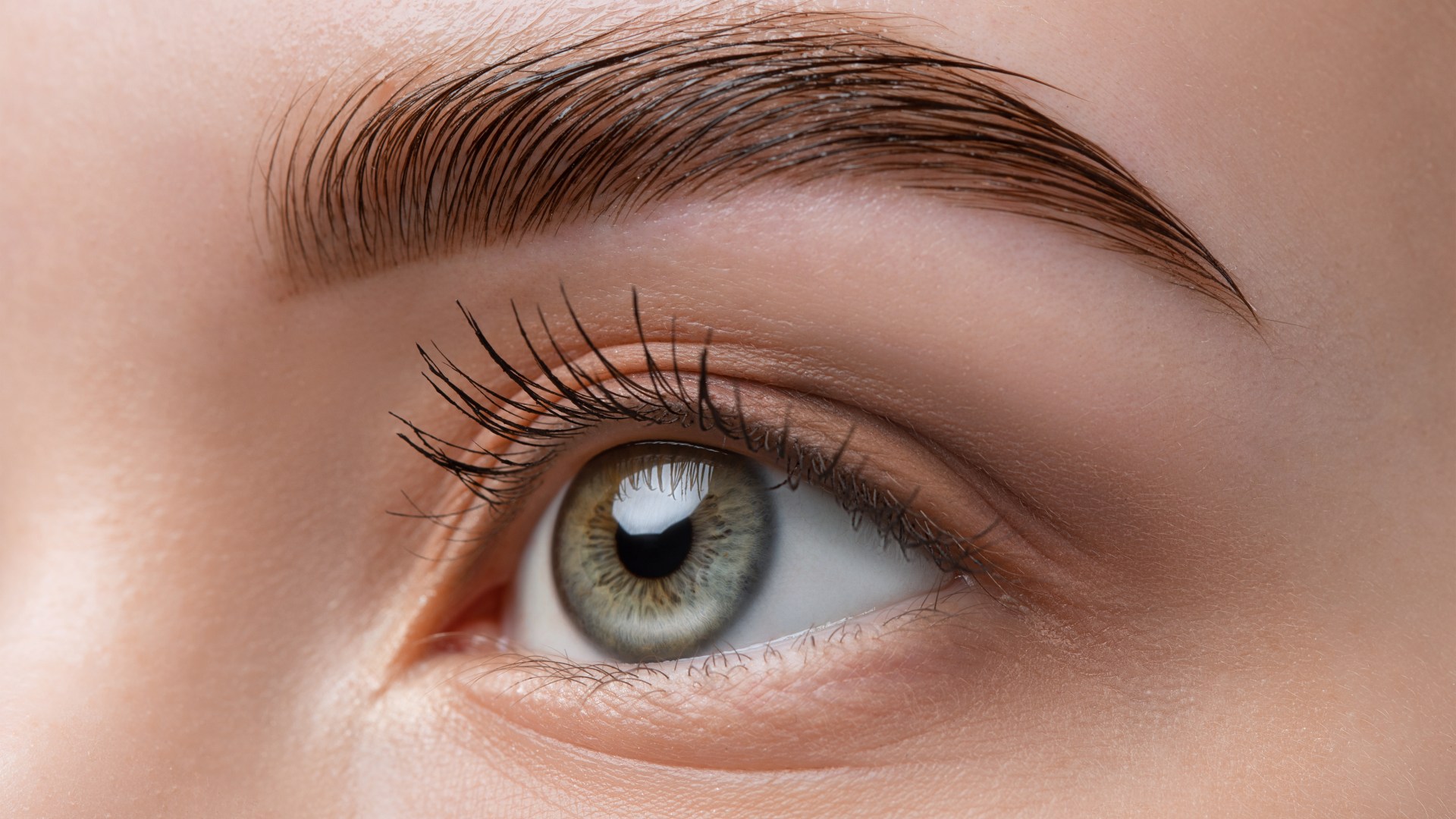FROM bushy Brooke Shield’s brows to pencil-thin 90s tadpoles, eyebrow trends come and go.
Not only are brows fun to shape, they can also be especially useful when reading people’s emotions – especially if that emotion is an eye-brow-raising shock.
4

4

4

4
But according to experts, your brows can serve an even greater purpose.
They can provide a window into your overall health, giving you clues on whether you’re eating well or getting enough sleep.
They can also reveal various health issues, from hormonal yo-yoing to autoimmune disorders, according to Dr Sarah Jenkins, an aesthetics doctor and former GP.
Whether you’re keeping them bushy and full, sharp and thin, bleaching them or shaving a slit into your arch, it’s worth paying attention to your brows, she and Fides Baldesberger – hair removal guru and owner of Rubis Tweezers – say.
Here, we unveil just what your eyebrows could be telling you – from different conditions to clues on how to improve lifestyle habits.
1. Hypothyroidism
Thinning brows, especially towards the ends, can signify a hormonal condition known as hypothyroidism, Dr Sarah tells The Sun.
“Hair loss is usually quite a slow onset symptom of the condition,” she explains.
“It can also leave the skin around the eyebrows dry and flaky.”
Hypothyroidism happens when the thyroid gland, found in the neck, does not produce enough hormones.
This can cause many of the body’s functions to slow down and change how it processes fat.
Because of these changes, thyroid problems can lead to high cholesterol and artery clogging.
According to the NHS, stress may exacerbate an underlying thyroid condition – for example, hypothyroidism runs in your family.
2. Hormonal yo-yoing
Just like hair, we can have good and bad brow days.
It’s not just a question of how your brow hairs are lying; their growing patterns can also be determined by your hormones and the time of the month.
“If you have ever noticed your brows looking sparser or thicker at different times of the month, don’t worry, it’s not just in your head,” Fides says.
“Hormones, especially oestrogen and testosterone, play a major role in hair growth.
“During the follicular phase of your period – the first half of your cycle leading up to ovulation – higher oestrogen levels can promote hair growth, potentially making your brows look fuller.
“Conversely, in the luteal phase – after ovulation leading up to your period – progesterone rises and oestrogen drops, which may lead to shedding or slower growth.”
It’s not just month-to-month hormonal fluctuations that can take their effect on your arches.
More permanent changes can also change the appearance of your brows.
Fides explains: “During pregnancy, some women experience brow growth spurts, thanks to elevated oestrogen levels, whereas postpartum hormonal shifts can lead to shedding.
“Menopause, with its plummeting oestrogen, can thin out your brows too.”
3. Psoriasis
Certain skin conditions, like psoriasis can also change your brows.
“The skin around your brows will become raised, roughened, itchy and flaky, which can cause the hair to stop growing,” Dr Sarah explains.
Psoriasis causes flaky patches of skin which form scales, the NHS says.
These patches normally appear on your elbows, knees, scalp and lower back but can appear anywhere.
Two in 100 people in the UK are affected by psoriasis, making it relatively common, and most people get it over 20 years old.
The severity of psoriasis varies greatly from person to person.
4. Alopecia
If you notice small patches of hair loss in your brows, you could suffer from alopeica.
The autoimmune disease can also appear on the body, including the beard, eyebrows, eyelashes or body hair, including pubic hair, the expert said.
According to the charity Alopecia UK, around 400,000 people in the UK either have the condition or have had it in the past.
It happens when cells mistakenly attack the hair follicles, stopping them from producing more hair.
“Further investigation would be necessary to find the underlying cause,” she explains.
The cause is unknown, but iron deficiency and stress could trigger the condition, although many experts dispute this.
5. Nutrition deficiency
General thinning could indicate that you are not eating the right or enough of certain foods.
“Being nutrient deficient thins the brows, hair, nails and skin,” Dr Sarah explains.
“If any of these things happen, it’s a sign of malnourishment – everyone needs good daily vitamin and mineral supplements.”
As Fides puts it: “Your brows are surprisingly gourmet in their dietary needs.
“A lack of essential nutrients like biotin, zinc, and iron can lead to thinning brows.
“Conversely, indulging in certain ‘superfoods’ can give them a boost.
“For instance, munching on almonds and pumpkin seeds, rich in omega-3 fatty acids and vitamins, can promote healthier brow growth.
“It’s like a spa day for your brows every time you snack smartly.”
When to worry and when to see a doctor
IF you start experiencing eyebrow hair loss, you should see your doctor to determine the cause.
They can pinpoint other symptoms and order the proper tests to diagnose the underlying condition.
After that, they can get you on the correct treatment.
According to one 2017 review study, having a lack of fatty acids -which are found in fish, nuts, and seeds – in the body may cause eyebrow hair loss.
Not getting enough biotin can also result in thinning hair and losing body hair.
Although biotin is a popular hair growth supplement, there is limited evidence to support its effectiveness.
A lack of zinc, found in meats and seafood, can also lead to hair loss.
The authors of a 2017 review say that zinc supplements may help with hair regrowth in people with a deficiency.
6. Stress test
Stress can do more than keep you up at night or send your mind racing.
According to Fides: “Chronic stress can trigger your brows to enter a resting phase prematurely.
“Think of it as your brows taking an unplanned holiday due to your stressful schedule.
“Managing stress through meditation, exercise, or even laughter can coax them back to work.”
7. Sleep on it
It’s called ‘beauty sleep’ for a reason.
Not getting enough snooze can do more than affect your mood, energy and skin – it can also take a toll on your brows.
“Sleep, or the lack thereof, massively impacts your brows,” Fides says.
“Poor sleep can disrupt the body’s natural repair cycle, affecting hair growth.
“When you skimp on sleep, your body produces more cortisol, which can slow down hair regeneration.
“So, think of your beauty sleep as a brow treatment, not just a skincare remedy.”
8. Microbiome disruptions
If you’re brows aren’t looking their fullest and you’re also noticing some flaking around them, your skin microbiome could be to blame.
Fides explains: “Your skin’s microbiome—the ecosystem of bacteria living on it—affects more than just acne and dryness.
“An imbalance can lead to skin conditions like dermatitis, which can affect your brows, causing flakiness or thinning.
“So, keeping your skin’s microbiome healthy with gentle, pH-balanced cleanser can actually keep your brows luscious and full.”
9. Environmental ills
Pollution can affect your health as well as your skin.
Most of us will only become aware of just how polluted our environment is when we’re blowing black snot out of us nose after being out and about during the day.
But it can also make itself felt in the state our brows.
According to Fides: “Pollution doesn’t just clog your pores; it can affect your brows too.
“Particles in the air can settle onto your skin and brows, potentially causing irritation or weakening hair shafts.
“Regular cleansing, particularly with products designed to combat environmental stressors, can help keep your brows resilient and robust.”
10. Tweezer-happy
Sadly, our brows can bear the scars of bygone fashion trends.
If you went on a plucking spree to achieve the clean brow look and went a bit too far, it’s likely your brows will take a while to reach their former glory.
“Ever wonder why that one brow hair refuses to stay put?” Fides asks.
“Your brows have a memory of their own, influenced by your grooming habits.
“Over-plucking can lead to hair follicle damage, making it harder for hairs to grow back.”
When hair loss isn’t normal
BEFORE you panic at seeing a few extra strands come out on your hair brush or in the shower, remember that some hair loss is normal.
There’s a difference between hair loss and hair shedding, and it’s normal to shed between 50 and 100 hairs a day.
When the body sheds significantly more hairs every day, you might have excessive hair shedding. The medical term for this condition is telogen effluvium.
Excessive hair shedding can be common if you’ve:
- Lost 20lbs or more
- Given birth
- Experienced lots of stress (caring for a loved one who is sick, going through a divorce, losing a job)
- Had high fever
- Undergone an operation
- Had an illness, especially if it included high fever
- Stopped taking birth-control pills
You might experience excessive hair shedding for a few months after a stressful event.
But the shedding will stop as your body readjusts and within six to nine months your locks will regain their normal fullness.
Hair loss occurs when something stops the hair from growing. The medical term for this condition is anagen effluvium.
The most common causes of hair loss include:
- Hereditary hair loss
- Immune system overreacts
- Some drugs and treatments
- Hairstyles that pull on the hair
- Harsh hair-care products
If you suspect that a treatment or drug is causing your hair loss, talk with your doctor. Serious side effects can occur if you immediately stop a treatment or drug.
Other causes of hair loss may require treatment. Many people who have hereditary hair loss continue to lose hair without treatment.
Source: American Academy of Dermatology Association




